
The Boeing 767 banked over the Red Sea, turning east into Saudi Arabia. A commercial version of the plane can carry about 260 passengers. Inside this one, Saudi Energy Minister Prince Abdulaziz bin Salman and a dozen or so aides were heading home from a tumultuous meeting at OPEC’s headquarters in Vienna the day before.
For most of the journey, the jetliner had followed its expected route over Eastern Europe, the Mediterranean, and Egypt. It was a path Abdulaziz had flown scores of times. As oil minister since 2019 and a royal understudy before that, he’d attended almost every OPEC meeting in the past 35 years.
But this flight, on March 7, 2020, wasn’t typical. What occurred afterward wasn’t, either.
The decisions Abdulaziz took over the next 24 hours exposed a new Saudi oil policy—bolder, less constrained by Washington, defiant of a growing global consensus on climate change, and more centrally controlled by the royal family, including one of his half-brothers, Crown Prince Mohammed bin Salman.
They also reflected what Abdulaziz sees as his destiny: to ensure that the last barrel of oil on the face of the Earth comes from a Saudi well. As he said in June during a private event organized by Bank of America Corp., according to a person familiar with the meeting, “We are still going to be the last man standing, and every molecule of hydrocarbon will come out.”
All of this has huge implications for the world’s energy markets at a time when, in erecting a fortress to safeguard oil, Abdulaziz and Saudi Arabia seem to be on the wrong side of history. Abdulaziz, the first member of the royal family to be the kingdom’s energy minister, is the most important single person in the oil market today. As influential in global economic terms as some central bankers, he has repeatedly taken bold, successful steps to control the markets, manage the flow of oil supplies, and shore up prices.
この記事は Bloomberg Markets の August - September 2021 版に掲載されています。
7 日間の Magzter GOLD 無料トライアルを開始して、何千もの厳選されたプレミアム ストーリー、9,000 以上の雑誌や新聞にアクセスしてください。
すでに購読者です ? サインイン
この記事は Bloomberg Markets の August - September 2021 版に掲載されています。
7 日間の Magzter GOLD 無料トライアルを開始して、何千もの厳選されたプレミアム ストーリー、9,000 以上の雑誌や新聞にアクセスしてください。
すでに購読者です? サインイン
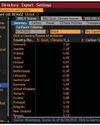
See Which Countries Are Falling Behind On Climate Change
Under the Paris Agreement, 190 countries and the European Union pledged to take steps to hold the global temperature rise to less than 2C (3.6F) from preindustrial levels—and preferably 1.5C.
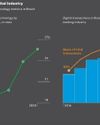
Billionaires Vie for the Future of Brazilian Finance
An escalating battle between two billionaires is upending the financial community in São Paulo, Latin America’s wealthiest city.
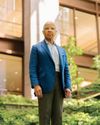
Ford Foundation's Darren Walker: ‘We Have to Get Uncomfortable'
DARREN WALKER, 62, disrupted his Wall Street life more than 25 years ago when he left what is now UBS Group AG to volunteer at a school and eventually pursue a career in community development and philanthropy. Since 2013 he’s been at the pinnacle of the philanthropic world as president of the Ford Foundation, created by the family of automaker Henry Ford during the Great Depression to advance human welfare.

Fueling the Ener Transition
I MAY BE BIASED, but some of the most important research and data on the Bloomberg terminal lies in one of its lesser-known functions: {BNEF }

Dig Into Analysts' Estimates for Disruptive Companies
THE PANDEMIC ERA generated a whole wave of disruptive companies as it accelerated the introduction of new products and services in areas including artificial intelligence, digitization, electronic payments, online meeting platforms, and virtual currencies.
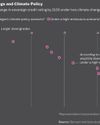
Climate Risks Come for Sovereign Credit
FOR YEARS climate scientists have warned about the ferocious wildfires and hurricanes that are now overwhelming many communities. Today alarms are ringing about a related financial danger: risks lurking within government bonds, the biggest part of the global debt market.

Responsible-Investing Pioneer Lydenberg Says ESG Needs An Upgrade
STEVE LYDENBERG’S passion for social change was inspired by anti-Vietnam War demonstrations, consumer boycotts, and the movement to divest from apartheid South Africa. But he didn’t take to the streets. Instead, Lydenberg turned to the world of finance to help catalyze societal change.

Engine No. 1's Grancio: ‘People Will Appreciate an Economic Argument'
ENGINE NO. 1 sent shock waves across corporate America in May when the fledgling investment firm won a boardroom battle with Exxon Mobil Corp., securing three seats on the oil and gas giant’s board after purchasing only about $40 million of its stock.
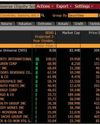
Find Out Which Companies May Ramp Up Payouts After Covid
AS THE PANDEMIC DISRUPTED business last year, many companies cut or suspended dividends. Which will boost their payouts when economies pick up again?
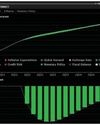
Get Into the Minds of Central Bankers as They Navigate Shocks
HAVE YOU EVER WONDERED how central bankers forecast the impact of shocks on the economy?